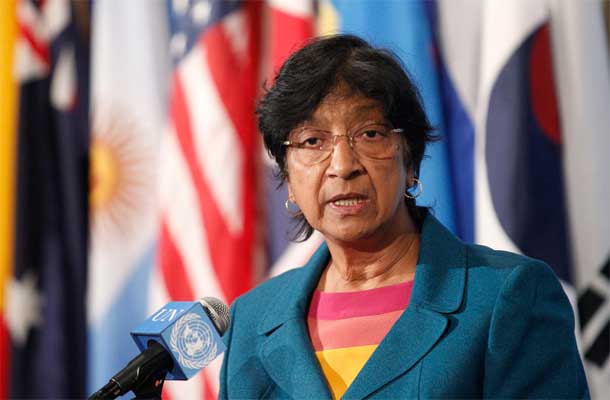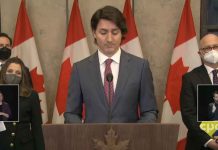Investigators struggle to reach MH17 crash site as Ukraine fighting intensifies by Reuters
Situation between Russia and West Day by Day
WASHINGTON – INTERNATIONAL – “Russian troops continue to mass along the border with Ukraine, and heavy and sophisticated Russian equipment continue to flow across the border to Russian-backed Ukrainian separatists”, Pentagon spokesman Army Col. Steve Warren said today. “Around 12,000 Russian combat troops remain along Ukraine’s southern and eastern borders”, the Colonel told reporters at the Pentagon, noting that Russian equipment crosses the border into Ukraine with impunity.
“I can tell you that last week we saw a column of over 100 Russian vehicles moving into Ukraine,” Warren said. “That’s the largest one we’ve seen. It is a substantial enough number that is a great concern to us.”
Heavy and sophisticated equipment requires trained personnel, he said. “What we’ve seen that most concerns us is in southern Russia, Ukrainian separatists participating in training activities … around Rostov,” he added. “This indicates that Russia is, in fact, training these separatists on how to fight, how to operate equipment [and] how to conduct operations in Ukraine.”
More equipment could be quickly moved in to Ukraine, the colonel said. “What the Russians do is posture equipment along the border … in such a way that it can move at any time,” Warren said.
On July 25, Russian artillery fired across the border into Ukraine. U.S. officials continue to urge Russia to de-escalate the tensions along its border with Ukraine.

Shooting Down of MH17 War Crime – UN
The shooting down of a Malaysian Airlines plane over eastern Ukraine may amount to a war crime, the United Nations High Commissioner for Human Rights today said today, releasing a new report that details a total breakdown of law and order and a reign of fear and terror inflicted by armed groups in the area.
“I would like to stress to all those involved in the conflict, including foreign fighters, that every effort will be made to ensure that anyone committing serious violations of international law, including war crimes, will be brought to justice, no matter who they are,” Navi Pillay said. “I urge all sides to bring to an end the rule of the gun and restore respect for the rule of law and human rights.”
The High Commissioner made the comments while issuing a new report by the UN Human Rights Monitoring Mission deployed to Ukraine in mid-March, calling for greater care to prevent more civilian casualties.
The report, which covers the period from 8 June to 15 July, does not officially cover the 17 July downing of the plane. However, Mr. Pillay used the launch of the report to call for a “prompt, thorough, effective, independent and impartial investigation.”
The UN Security Council has also called for an international investigation into the incident, and demanded that armed groups allow unfettered access to the crash site and ensure that its integrity is maintained.
Meanwhile, in the report, the Office of the High Commissioner (OHCHR) documents how armed groups continue to abduct, detain, torture and execute people kept as hostages in order to intimidate and “to exercise their power over the population in raw and brutal ways.”
“Already increasing numbers of people are being killed with serious damage to civilian infrastructure, which – depending on circumstances – could amount to violations of international humanitarian law,” she said. “The fighting must stop.”
More than 812 people have been abducted or detained, according to the report, including politicians and employees of the local coal mining industry, but the majority of them ordinary citizens, such as teachers and students. Those detained are frequently used to seek ransom, while some are forced to dig trenches or fight on the front lines. There are also reports of alleged executions following so-called military tribunals.
In response, the Government of Ukraine has accelerated its security operations, resulting in heavy fighting and an estimated 101,617 people fleeing to other parts of Ukraine, according to the UN Refugee Agency (UNHCR).
“The reports of increasingly intense fighting in the Donetsk and Luhansk regions are extremely alarming,” Ms. Pillay said, with both sides employing heavy weaponry in built-up areas, including artillery, tanks, rockets and missiles.
The report also points out how impunity in the areas under the control of the armed groups in the east has led to the collapse of the rule of law.
OHCHR noted that while the Government faces challenges to restore law, order and security, it must urgently prioritize good governance, rule of law and human rights issues, especially as Ukraine “seeks to fulfil its EU aspirations and establish a democratic and pluralistic society.”
In addition, the Office underscored that the human rights situation in Crimea remains a great concern with intensified harassment and discrimination of Ukrainian nationals, Crimean Tatars, religious minorities and activities opposed to the 16 March referendum.
The report also noted the impact of the current economic recession facing the country, particularly in the east which is the country’s centre for heavy industry.
The intensified fighting and continuation of the conflict have led to “more polarized” opinions, including dramatic escalation of hate speech, particularly on social media, as well as demonstrations and protests, including in the Parliament.
Fighting Intensifies
Eleven days after it crashed, the wreckage of Malaysian Airlines Flight MH17 remains out of reach for international investigators.
For the second day running, fighting between pro-Russian separatists and Ukrainian forces has kept them away.
Alexander Hug, the Deputy Head for the OSCE Monitoring Mission in the Ukraine says, “We were stopped because there was gunfire and what we understand was artillery impacts nearby, very near.”
Residents too, face roadblocks as the fighting continues. Ukraine says its troops have recaptured more territory from pro-Russian rebels near the site, although at least three civilians are reported to have been killed in the process.
Shakhtarsk resident Olga states, “It was horrible, we were hiding in cellars, children were crying, they were scared, there was no electricity, nothing, it was a nightmare”.
FILES: DAILY MOTION / REUTERS












